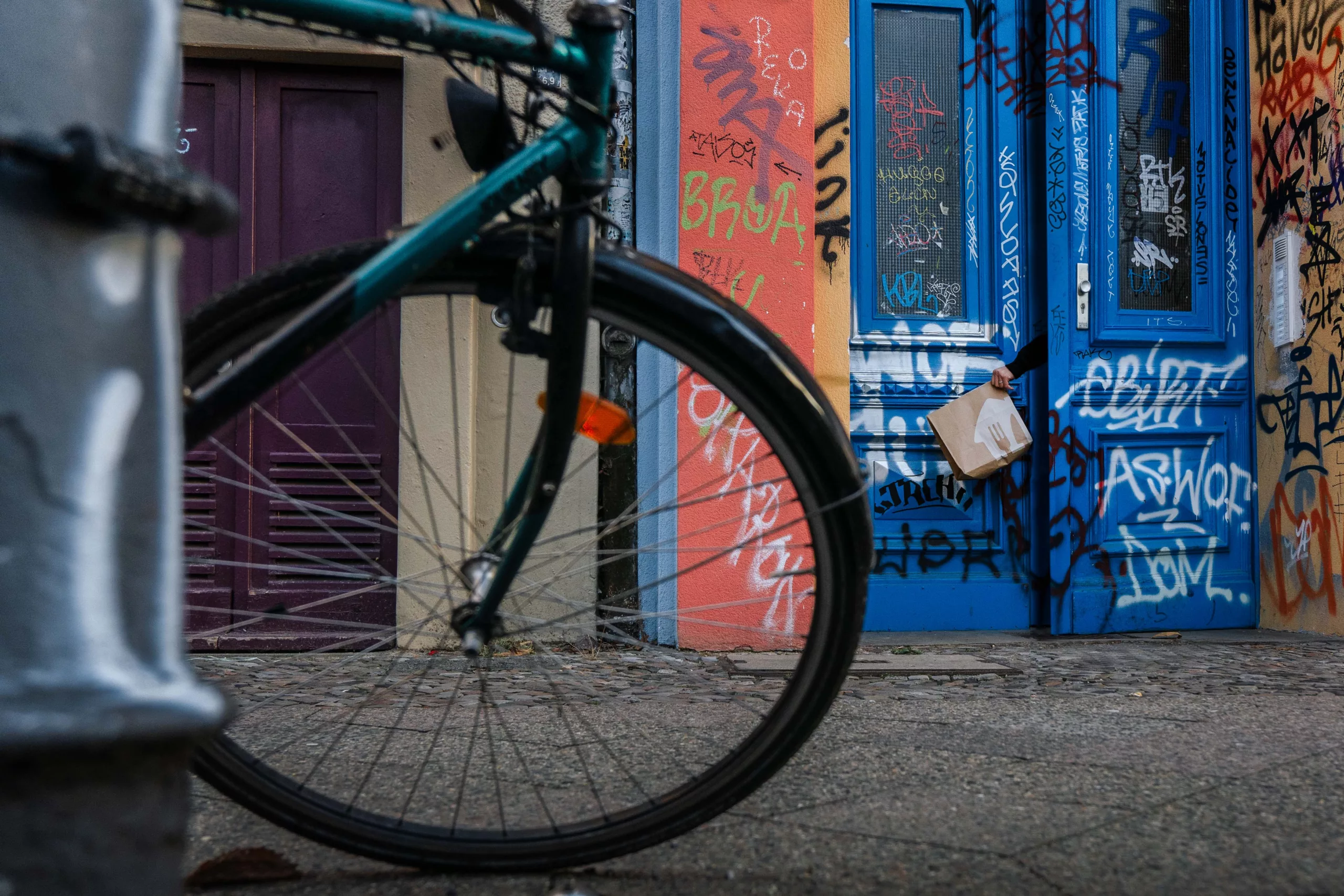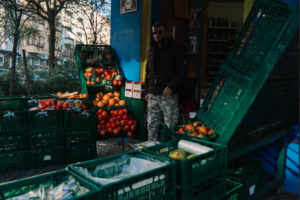Delivering Convenience – Food-Tech Takeover

Delivering Convenience – Food-Tech Takeover
Are supermarkets a thing of the past?
By Otis Hagen Chevalier
Ever wondered what a pitch to investors for a food delivery startup would sound like? “Why waste valuable time shopping for necessities when it can all be done through an app? Convenience is the name of the game! Supermarkets are too cumbersome and time-consuming for a busy life. Let us do the heavy lifting for you!” Doesn’t that sound appealing for groceries, takeout, and recipe boxes to arrive at one’s doorstep meanwhile time can be spent more productively, like watching Netflix? For some, the alternative is mundane: deciding on a recipe, heading to a farmer’s market on a Tuesday, only to return with ingredients that await to be cooked. What a lengthy process! Or worse, how ordinary would it be to start a healthy relationship with a baker or butcher? Why would anyone in their right mind go through all of that when an algorithmic recommendation from a tech company will do the job? After all, what is there to lose with a food delivery service? My grandparents moved from Paris in the 1960s to the countryside where they had to go to the butcher, baker, or such, to get their food. In return, it created a sense of community and quality products. They actually knew the person or family making their food. That community turned on its head when the first mega-supermarket took place in their small town and slowly took out the small-fry competition — the artisans. Pristine packaged processed foods have replaced those who worked with their hands. Factory-to-table replaced farm-to-table. In 2022, nearly all farmer’s markets and supermarkets are slowly becoming a thing of the past. Accountability is a hefty loss for the previous generations who were used to shopping in several stores to get what was needed. Quality prevailed, the consumer was face-to-face with the producer and could be held accountable at all times (except on Sundays).
“Pristine packaged processed foods have replaced those who worked with their hands. Factory-to-table replaced farm-to-table”
A recipe box can give someone more confidence or even creativity in cooking, providing a healthier diet and giving a slight culinary education. Less time could be wasted by looking for recipes on blogs or pretending to go through a dusty cookbook for inspiration. Instant food delivery is also very practical for the elderly and those in need, the benefits were seen throughout the pandemic. And indeed, there is not much harm in jumping from one food-tech monopoly to another. The harm lies where it has, since the start of being a consumer to big corporations. Corporations have little to lose, unlike small businesses that need dire support or else their business could vanish just like those artisanal shops from the past. What suffers are the little old school ‘start-ups’, you know, the farms? Those small farms trying to make a living, and sell food that they live by in order to provide sustenance out of passion, love, purpose, and necessity.
One of the biggest downsides of food delivery apps like Gorillas is food waste, whether by over-ordering or the amount that stays stagnant at one of their 18 food headquarters in Berlin alone. Gorillas upside is climate neutrality with bicycles delivering convenience. Excess plastic seems unavoidable anywhere, even in meal kits from Hello Fresh to Marley Spoon and countless others. These corporations are good at making their eco-friendly jargon sound all groovy with food-waste or climate neutrality. Do these corporations provide real transparency or social responsibility for animal welfare, sustainability, fair trade, and unharvested or unsold produce for aesthetic reasons? The same can be said about supermarkets, but not for farmer’s markets.
Food has been doing just fine in providing us with life, and survival. Why mess with food in ways that sometimes really make little sense? Food apps might be there already, providing new incentives or sales to entice people to purchase something they don’t want or need. Giving the consumer little information about the product and providing a hefty bonus to their collaborative partner and making a small fortune. In the end, it won’t be about selling healthy food or keeping the consumer’s health in mind, it will be about what businesses always have been. The money, the cheese, the gouda, the thing that is so easily spent through your phone.

The monetary proof is in the pudding, the profits from food delivery in Europe alone are in the billions. China and the United States make our food delivery consumption in Europe look minuscule and childlike. Globally the food delivery business was valued at varied numbers from 126 to 189 billion in 2021. After looking at market reports, trends analysis, PowerPoint presentations, and segment forecasts, the numbers and percentages had me lost but it was clear, it wasn’t about food, health, or well-being. The content of this one PowerPoint had headlines for each slide such as: “Eating habits are evolving. Convenience is the driver.” or “Market leadership is key for profitability.” The business-minded person would get all giddy looking at those headlines along with favorable statistics since it shows promise for investors. The promise for the consumer is well, convenience.
“there is a detachment with food that will continue to grow”

Convenience is taking food, and the labor it takes to make food, for granted. Is convenience a price to pay for a lack of answers and accountability on how sustainable some of these corporations are? Once the connection of community is ditched for convenience, there is a detachment with food which will continue to grow. We won’t know what to fight for anymore. Therein lies a lack of engagement with those behind the food industry who grow our potatoes and chickens, which allows a loss of touch with their issues, and at that point food becomes political. People are spoiled with options because capitalism rocks, right? People deserve to be king or queen for the day and choose whatever they please because that is the way our society works. Trying to avoid politics when it comes to food is impossible. Food is politics. Every penny spent on food is a vote for change. What are you voting for today?
This articles is part of our Winter / Autumn 2022 / 2023 edition
We run monthly magazine projects in Berlin, reach out for more info
Words Otis Hagen Chevalier
Photos: Nina Martinelli
